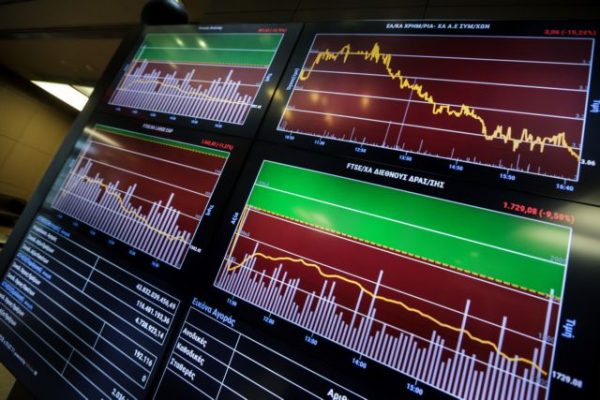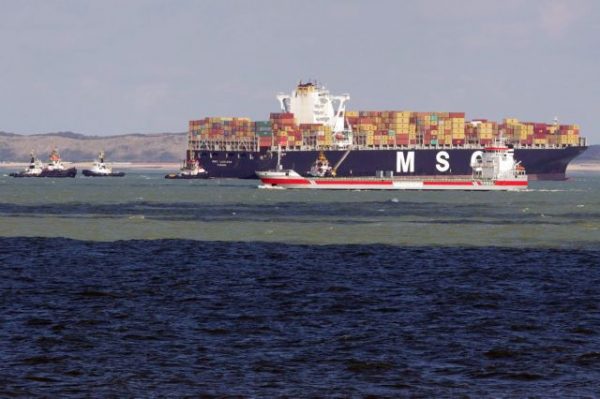
The Governor of the Bank of Greece, Giannis Stournaras, called on the administrations of the credit institutions to be on alert to deal with any new outbreak of red loans during his speech yesterday at the general meeting of shareholders of the monetary authority.
As he noted, on the one hand, the full impact of the pandemic on the economy has not been fully reflected, and on the other hand, the current energy crisis is putting pressure on the majority of borrowers.
According to the Bank of Greece, the negative impact of high inflation on the actual disposable income of households will limit the increase in consumer spending.
This fact, combined with the increased production costs due to the energy crisis, will negatively affect the profitability of companies.
Two trouble-spots
In the Governor’s report for 2021, the BoG refers to two major categories of loans, which could provide new non-performing loans (NPLs):
– In regulated exposures amounting to 15.3 billion euros
– In loans that come out of the state protection regime and return to regular installments
According to Mr. Stournaras, given the impact of the pandemic, it is estimated that “a significant percentage of the loans to which some kind of regulation has been applied, may be recorded as non-performing in 2022”.
He notes that even before the outbreak of the war, a high percentage of loans that were restructured, again showed a delay in a relatively short period of time after the conclusion of the most favorable repayment terms for the debtor.
At the same time, the central banker points out that part of the loans that are under support, e.g. through programs such as the “Bridge” [Gefyra], it is likely to be recorded as a NPL when the facilitation period has elapsed.
The indices are still high
The Bank of Greece also presents the performance of banks in terms of consolidation of their balance sheets.
According to the relevant provisional data, at the end of 2021 NPLs fell to the level of 18.4 billion euros and the index of arrears to 12.8% from 47.2 billion euros and 30.1% respectively a year earlier.
Despite the significant progress on the bad credit front, which was greater than the targets set by the banks, Mr. Stournaras in his report emphasizes the fact that the distance from the European average is still large (2.1% – September 2021 ).
In addition, he points out that most of the decline in red portfolios has come from securitizations and sales of exposures, which remain in the economy and not from the treatment of non-performing loans.
The issue was raised by banking executives on Thursday, speaking at the Delphi Economic Forum, who stressed that this makes it difficult for a large number of companies to access financing.
The problem is here
“The red loans left the banks but not the Greek economy. We can not lend to those who are “red” “underlined George Zanias, chairman of the board and non-executive advisor of Eurobank.
As he said, “the serviced loans are at 60% of GDP and should be doubled, without this being done indiscriminately, as the next crisis may come and we will end up with the memoranda again”.
For his part, George Hantzinikolaou, president of Piraeus Bank, noted that the problem of red loans remains.
As he said, non-performing loans may have come out of the bank balance sheets, but “they are in the economy, preventing these borrowers from returning to economic activity.”
According to him, several investment plans are rejected every day because companies have overdue debts to the banking system.
In this context, he stressed that the operation of the bankruptcy law can give them a real second chance, so that they can return to normalcy.
Latest News

Greece Defines Continental Shelf Limits and Maritime Zones in Landmark EU Document
The Maritime Spatial Planning (MSP) framework represents a comprehensive approach to spatial planning and is crucial for the successful development of a blue and circular economy

EU Praises Greece’s RRF Progress as Revised Recovery Plan Nears Completion
Athens is preparing to submit its revised “Greece 2.0” Recovery and Resilience Plan after Easter, with a slight delay from the initial timeline but with the European Commission’s approval.

Greek €200M 10Y Bond to be Issued on April 16
The 3.875% fixed-interest-rate bond matures on March 12, 2029, and will be issued in dematerialized form. According to PDMA, the goal of the re-issuance is to meet investor demand and to enhance liquidity in the secondary bond market.

German Ambassador to Greece Talks Ukraine, Rise of Far Right & Tariffs at Delphi Economic Forum X
Commenting on the political developments in his country, the German Ambassador stressed that it was clear the rapid formation of a new government was imperative, as the expectations across Europe showed.

Athens to Return Confiscated License Plates Ahead of Easter Holiday
Cases involving court orders will also be excluded from this measure.

Servicers: How More Properties Could Enter the Greek Market
Buying or renting a home is out of reach for many in Greece. Servicers propose faster processes and incentives to boost property supply and ease the housing crisis.

Greek Easter 2025: Price Hikes on Lamb, Eggs & Sweets
According to the Greek Consumers’ Institute, hosting an Easter dinner for eight now costs approximately €361.95 — an increase of €11 compared to 2024.

FM Gerapetritis Calls for Unified EU Response to Global Crises at EU Council
"Europe is navigating through unprecedented crises — wars, humanitarian disasters, climate emergencies," he stated.

Holy Week Store Hours in Greece
Retail stores across Greece are now operating on extended holiday hours for Holy Week, following their Sunday opening on April 13. The move aims to accommodate consumers ahead of Easter, but merchants remain cautious amid sluggish market activity.

Green Getaway Ideas for Easter 2025 in Greece
Celebrate Easter 2025 in Greece the sustainable way with eco-farms, car-free islands, and family-friendly getaways rooted in nature and tradition.








































 Αριθμός Πιστοποίησης
Αριθμός Πιστοποίησης